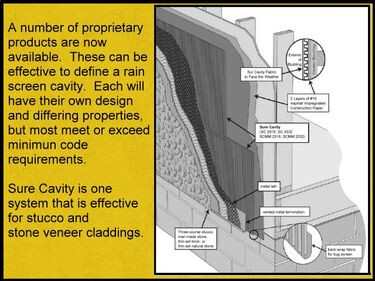the medical system will always be subsidized by general coffers. But if the taxes pickup half the tab it’s better than nothing.
I was shocked to see a pack of smokes is $20 now…
the medical system will always be subsidized by general coffers. But if the taxes pickup half the tab it’s better than nothing.
I was shocked to see a pack of smokes is $20 now…
and instead of being able to grow food here, we have to truck everything fresh up from the southern US and Mexico.
So…the tl;dr here is that in order to avoid housing retrofits, keep burning tons of natural gas and complain a lot?
Notably, he recorded this rant before the consumer price of natural gas went through the roof in the UK, and made natural gas prohibitively expensive to heat the same homes with. But he’s probably correct that heat pumps aren’t going to solve the problems presented by old housing stock.
it makes sense to change building codes on NEW construction to take into account the changes in design and technology advances in HVAC, but it doesn’t make sense to shove a square peg into a round hole when it comes to forced air heating which is how 95% of homes here still run.
So yes, we retrofit triple-glaze windows and seal up our homes as best we can. maybe, replace insulation if we have to replace the siding in our walls? my lower half is already done. my attic has 10" of insulation up top, just my upper floor is till shitty old pink insulation with paper backing from 1968. not much I can do about that.
You can use a heat pump with a forced air/ducted system. But if you are looking for a magic solution that will make a mediocre building envelope viable at high energy prices, there isn’t one. If you accept the policy imperative is to reduce emissions to some level x, energy prices have to line up to push demand down. The brutal truths are that means some houses no longer have an economic value, and some people can no longer afford where they live. We saw that in the UK when natural gas supply in Europe collapsed and the price of all consumer home energy prices went through the roof (electricity price in the UK is more or less set by the price of natural gas)
The problem is then what governments do to manage that transition.
I’m not looking for a magic solution. nobody is. Just for the question to be viable and the answer to make fucking sense.
great, let’s get everyone in electric cars. But, let’s not upgrade the electrical grid…because that’s just silly.
That rant was basically saying ‘don’t switch to heat pumps, you need a gas boiler than can throw a massive number of BTUs to keep your crappy house warm’. It is fairly bad policy if the UK government is creating incentives for heat pumps but not housing stock upgrades, simple energy efficiency measures usually have a much better return (although those triple pane windows overpromise too)
I don’t think electric cars, at least the ones we have right now, are the solution. Bang on about the electrical grid too, although that is happening to a far greater degree than most people understand.
yep. except SiteC is coming in at 3x the original budget. BC Hydro is trying but the land appropriation process has been a complete clusterfuck all-around.
they have replaced the transformers on our street recently, from 15KVA to 25KVA. but we’re all 110V/100A service to the homes so if they’re expecting us to dump natural gas heading for electric heat pumps and our gasoline cars for electric… we’re going to end up having to add a whole other line to the home with a separate sub-panel for the car and heating.
Yeah, Site C is the trainwreck that every critic was assured it would not be. I was referring more to how the grid works now versus 20 years ago - it is far more effective at integrating intermittent renewables like wind and PV than it once was, though there is still a lot required to get where we need to be.
200A service is now fairly common here, a teammate just went to 400A (heat pump and a Tesla…). Sounds like your distribution network will need major investment. Not that ours doesn’t, we have had no less than three 24+ hour outages in some Ottawa neighbourhoods in the calendar rain. We get freezing rain so much more often now than we used that old infrastructure is now incredibly vulnerable.
really, unless it’s transmission lines failing they should be at the point of underground cables.
My local grid is on poles, however I’m about 2.5km from the substation and my power rarely goes out. if it does, for 5mins due to a transformer doing a reset.
Our local utility keeps saying it is too expensive to bury the cables…I would have thought getting crews out on a weekend night at 2am would add up. When we have had outages, it is usually stepdown transformers blowing - but often because multiple cables have come down to ice/wind.
Most recent incident had our 110V service ‘upgraded’ to 220V on one of the phases (half the circuits were dead, the other 220+/-). We were fortunate, but a neighbour’s house sustained massive damage and has needed to be almost completely rewired.
it’s a lot of work to bury cable, right to your panel at the home. driveways, yards and roads all have to get dug up.
Definitely. But they have hung the distribution lines behind my house three times this year, along with the connection to the house itself. Their financial estimates are based on historical data, but doesn’t reflect our climate as it is today.
we should be transitioning in suburban areas to all underground.
there are so many benefits. the transition might be expensive, (only because government sponsored monopolies (here in vic anyways) have a way of chewing up ridiculous amounts of money) but lets face it, if you stand back and view it as an overall exercise…digging a hole and burying a cable with short term powere expenses really isnt THAT hard a task.
and long term the benefits are obvious.
i mean…thats really the overall point of paying tax in the end isnt it? to get a better end result for the inhabitants…

except in the cases of rural demographic, it’s all underground on new builds. they have to excavate to run water, sewer and storm drains anyways
in rural areas, they’re on septic systems so those houses are run from poles anyways.
That reminds me. I’m thinking of buying some new windows and have been wondering whether triple glazing is worth paying up for?
I live in a fairly old house, where the windows are quite drafty. We live on a side road which can be quite busy as it is a cut through, to the road into our town centre, and has buses running through it.
The noise might well be the bigger factor. A triple-pane window is about 33% more efficient on heat resistance (R-value), but U-value (heat transference) is about as important. The net is triple-glaze is about 20% better than similar technology double pane. But the wall probably outperforms them both.
Triple-Pane Windows in Canada – Are They Worth It?.
The best return on an investment will be improving the air leakage, which either option will do very well on. For your case, the R-characteristics will be less valuable, as the temperature differential simply won’t be that large, you will seldom see the indoor-outdoor spread of 35 degrees Celsius. So payback on triple-pane will be even longer.
possibly. However, am not sure how up to date you are on current building envelope requirements. Things have changed substantially since our homes were built. I was shocked to see what my brother had to do to his home to meet come on his new build. Granted, he took things to the Nth degree when it came to his enclosure system but bloody hell it’s a lot of work.
far cry from 50yrs ago

I do some work in the Green Building sector (including some economy-level modelling of how much things like Net Zero and the 2030 Code would cost), so fairly familiar. For an older UK home, though, even the 2018 code is so far away from the existing stock as to be irrelevant. That said, for the UK, the Vancouver area comparison is fairly reasonable. For older buildings, the best yield on improvements is almost always improving air leakage, because most of them are a sieve. When you can feel a draft at a window, you are losing far more energy from heated air flowing out than radiant loss.